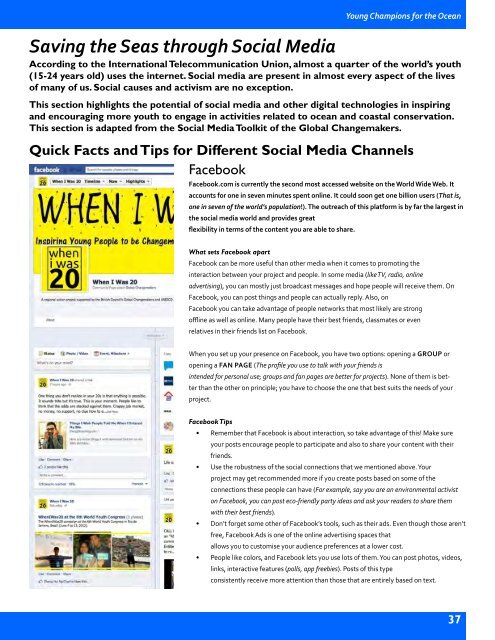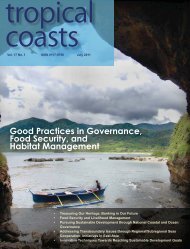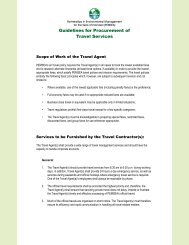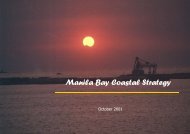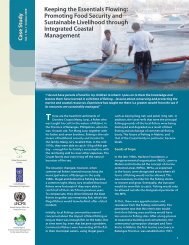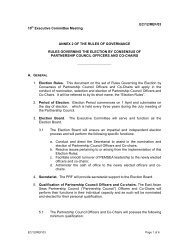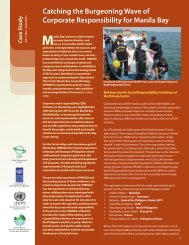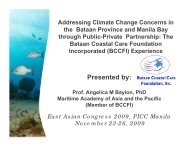Third East Asian Seas Youth Forum Toolkit - PEMSEA.org
Third East Asian Seas Youth Forum Toolkit - PEMSEA.org
Third East Asian Seas Youth Forum Toolkit - PEMSEA.org
- No tags were found...
You also want an ePaper? Increase the reach of your titles
YUMPU automatically turns print PDFs into web optimized ePapers that Google loves.
Young Champions for the OceanSaving the <strong>Seas</strong> through Social MediaAccording to the International Telecommunication Union, almost a quarter of the world’s youth(15-24 years old) uses the internet. Social media are present in almost every aspect of the livesof many of us. Social causes and activism are no exception.This section highlights the potential of social media and other digital technologies in inspiringand encouraging more youth to engage in activities related to ocean and coastal conservation.This section is adapted from the Social Media <strong>Toolkit</strong> of the Global Changemakers.Quick Facts and Tips for Different Social Media ChannelsFacebookFacebook.com is currently the second most accessed website on the World Wide Web. Itaccounts for one in seven minutes spent online. It could soon get one billion users (That is,one in seven of the world’s population!). The outreach of this platform is by far the largest inthe social media world and provides greatflexibility in terms of the content you are able to share.What sets Facebook apartFacebook can be more useful than other media when it comes to promoting theinteraction between your project and people. In some media (like TV, radio, onlineadvertising), you can mostly just broadcast messages and hope people will receive them. OnFacebook, you can post things and people can actually reply. Also, onFacebook you can take advantage of people networks that most likely are strongoffline as well as online. Many people have their best friends, classmates or evenrelatives in their friends list on Facebook.When you set up your presence on Facebook, you have two options: opening a group oropening a fan page (The profile you use to talk with your friends isintended for personal use; groups and fan pages are better for projects). None of them is betterthan the other on principle; you have to choose the one that best suits the needs of yourproject.Facebook Tips• Remember that Facebook is about interaction, so take advantage of this! Make sureyour posts encourage people to participate and also to share your content with theirfriends.• Use the robustness of the social connections that we mentioned above. Yourproject may get recommended more if you create posts based on some of theconnections these people can have (For example, say you are an environmental activiston Facebook, you can post eco-friendly party ideas and ask your readers to share themwith their best friends).• Don’t f<strong>org</strong>et some other of Facebook’s tools, such as their ads. Even though those aren’tfree, Facebook Ads is one of the online advertising spaces thatallows you to customise your audience preferences at a lower cost.• People like colors, and Facebook lets you use lots of them. You can post photos, videos,links, interactive features (polls, app freebies). Posts of this typeconsistently receive more attention than those that are entirely based on text.37


